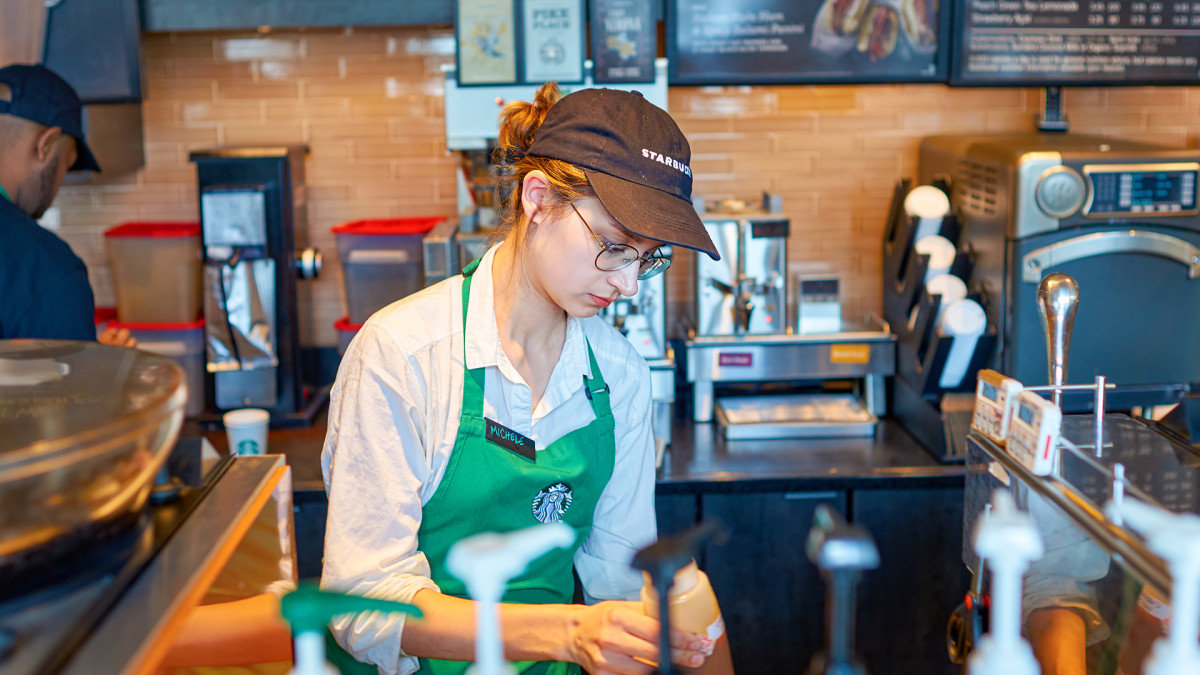
If you're one of the millions of Americans who enjoys a good cup of coffee, chances are you've ventured into the decaf category from time to time.
Unless you're a purist and caffeine devote, there can be some instances when drinking a decaffeinated cup of joe is the more realistic option.
Related: Amazon makes a major Prime Day announcement
That could be during lunch or dinner, if you're sensitive to too much caffeine, or if you're just craving the taste of coffee but would prefer not to get that extra kick of energy.
And while some coffee snobs might consider the taste of decaffeinated coffee sub-optimal, the numbers indicate there's a real decaf stronghold in the United States. Recent estimates suggest over 26 million Americans drink decaffeinated coffee at least one time per day.
Decaf coffee in jeopardy in the U.S.
If you've ever stopped to consider just how they get caffeine out of coffee, which is derived from a naturally caffeinated plant, you may assume it's a natural process, similar to roasting coffee for an extra long period of time or simply selecting for less-caffeinated beans.
Like many modern foods, however, the process of decaffeination requires, well, a lot more processing.

All coffee beans naturally contain caffeine. So in order to decaffeinate the beans to make a cup of decaf, the beans must undergo a process using chemical solvents, primarily with methylene chloride.
Methylene chloride, however, is not the safest of ingredients, even in small amounts. It is "a volatile, colorless liquid with a chloroform-like odor," according to the Occupational Safety and Health Administration (OSHA). "Methylene chloride is used in various industrial processes, in many different industries including paint stripping, pharmaceutical manufacturing, paint remover manufacturing, and metal cleaning and degreasing."
U.S. cracks down on harmful substances
OSHA considers methylene chloride to be a likely carcinogen, meaning it could be linked to cancer. The Food and Drug Administration (FDA) has been weighing the substance since January 2024. And on Tuesday, the Environmental Protection Agency (EPA) banned the use of methylene chloride for most applications.
As it stands now, the FDA allows a small trace — 10 parts per million (0.001%) — of methylene chloride to remain on beans for consumption. So the FDA filed a petition earlier in 2024 requesting that some potentially harmful chemicals, including methylene chloride, benzene, ethylene dichloride, and trichloroethylene, be removed from food and beverages.
More restaurants:
- Popular restaurant chain filing for bankruptcy, closing all locations
- Starbucks makes big change customers will notice right away
- Nespresso, Keurig make biggest coffee changes yet
But this doesn't mean all decaf coffee will be gone forever. There are other ways to decaffeinate the beverage, mainly using what's called the Swiss Water method, which soaks green coffee beans in water, allowing caffeine to naturally seep out over the course of several hours.
For now, decaf consumers who are worried about exposure to methylene chloride can check out several nonprofits who test drinks for potentially harmful chemicals.
The Clean Label Project recently tested several brands of decaf coffee and found traces of methylene chloride in the following:
- AmazonFresh Decaffeinated Colombia
- Kirkland Signature Decaffeinated Dark Roast
- Maxwell House Decaffeinated Original Roast
- Café Bustelo
It did not, however, find traces of the substance in the following brands:
- Starbucks
- Dunkin’ Donuts
- Folgers
- Caribou Coffee
- ILLY
Related: Veteran fund manager picks favorite stocks for 2024


.jpg?w=600)




